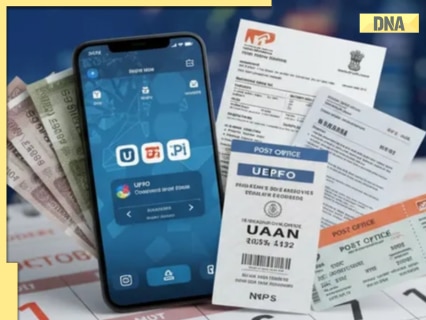
From October 1, 2025, several key changes will take effect in India, impacting banking, postal services, railways, and pensions. Here’s everything you need to know about changes which are likely to impact the pockets of the common people.
From the October 1, 2025, major changes in financial policy in several banks, government departments, and regulatory bodies, ranging from banking charges, NPS pension rules to RBI cheque clearing charges, are set to takes place. The major overhaul will impact everything from digital payments and pensions to online gaming, railways, and household expenses. Ahead of major festivals like Diwali, Dhanteras and Chhath pooja, people will benefit from these changes as impact reforms in LPG prices, CNG and PNG prices, Indian Railway online ticket, National Pension System (NPS), Unified Payments Interface (UPI) changes, Unified Pension Scheme (UPS), Atal Pension Yojana (APY), and NPS Lite, will affect everyday costs.
RBI cheque clearing
The Reserve Bank of India (RBI) has announced that, beginning October 4, 2025, cheque clearing system will switch to a continuous clearing model that settles transactions in real-time, reducing the clearing time from two working days to just a few hours. Starting October 4, 2025, banks will scan, present, and process cheques continuously during business hours. This will be executed in two phases, with the first beginning on October 4, 2025 and running until January 2, 2026. Phase 2 will begin on January 3, 2026.
IRCTC ticket reservation
Starting October 1, 2025, Indian Railways will introduce new rules for online train ticket bookings to curb misuse by ticket brokers and agents. Only Aadhaar-authenticated users will be able to book general tickets online within the first 15 minutes of reservation opening on the IRCTC website or app.
India Post
India Post is revising its Speed Post charges, effective October 1, 2025, with updated pricing and GST displayed separately. The service will also introduce enhanced security features, including OTP-based delivery, to ensure parcels are handed over only after verification.
LPG prices
There will be a major revision in LPG cylinder prices, effective from October 1st, directly impacting the kitchen budget, though no compulsory hike is fixed. The price of cylinders was last revised on April 8, 2025, across cities including Delhi-Mumbai, Kolkata-Chennai, and other cities.
Pension Rules
The Pension Fund Regulatory and Development Authority has revised fees for National Pension System (NPS) and Atal Pension Yojana (APY) subscribers. For new accounts, government employees will pay Rs 18 for an e-PRAN kit and Rs 40 for a physical PRAN card, while annual maintenance charges will be Rs 100. For APY and NPS Lite subscribers, the PRAN opening and annual maintenance charges are Rs15 each, and transaction charges are Rs 0. The revised charges will come into effect from October 1,2025.
NPS equity
Until September 30, 2025, the central government employees are allowed to switch from the National Pension System (NPS) to the Unified Pension Scheme (UPS) or vice versa. After October 1, 2025, switching between the two schemes won’t be allowed. Additionally, non-government NPS subscribers will be able to invest up to 100% of their funds in equities under a single NPS plan starting October 1, 2025, and can have multiple schemes under one PRAN across different record-keeping agencies.
Bank major rule changes: HDFC, Yes Bank, PNB
Several banks are introducing new charges and fees from October 1, 2025. HDFC Bank’s Imperia customers will need to meet revised eligibility standards to retain their Total Relationship Value (TRV) benefits. Punjab National Bank (PNB) is increasing charges for services like locker rentals, standing instruction failures, and stop payment instructions. YES Bank will also revise its salary account charges, affecting cash transactions, ATM withdrawals, debit card fees, and cheque return penalties.
UPI rule
From October 1, 2025, the National Payments Corporation of India (NPCI) will discontinue peer-to-peer (P2P) collect requests on UPI, impacting users of Google Pay, PhonePe, and Paytm. This means you won’t be able to receive payment requests from others through these apps. Instead, you’ll need to initiate transactions yourself using QR codes, UPI IDs, or bank account numbers.





